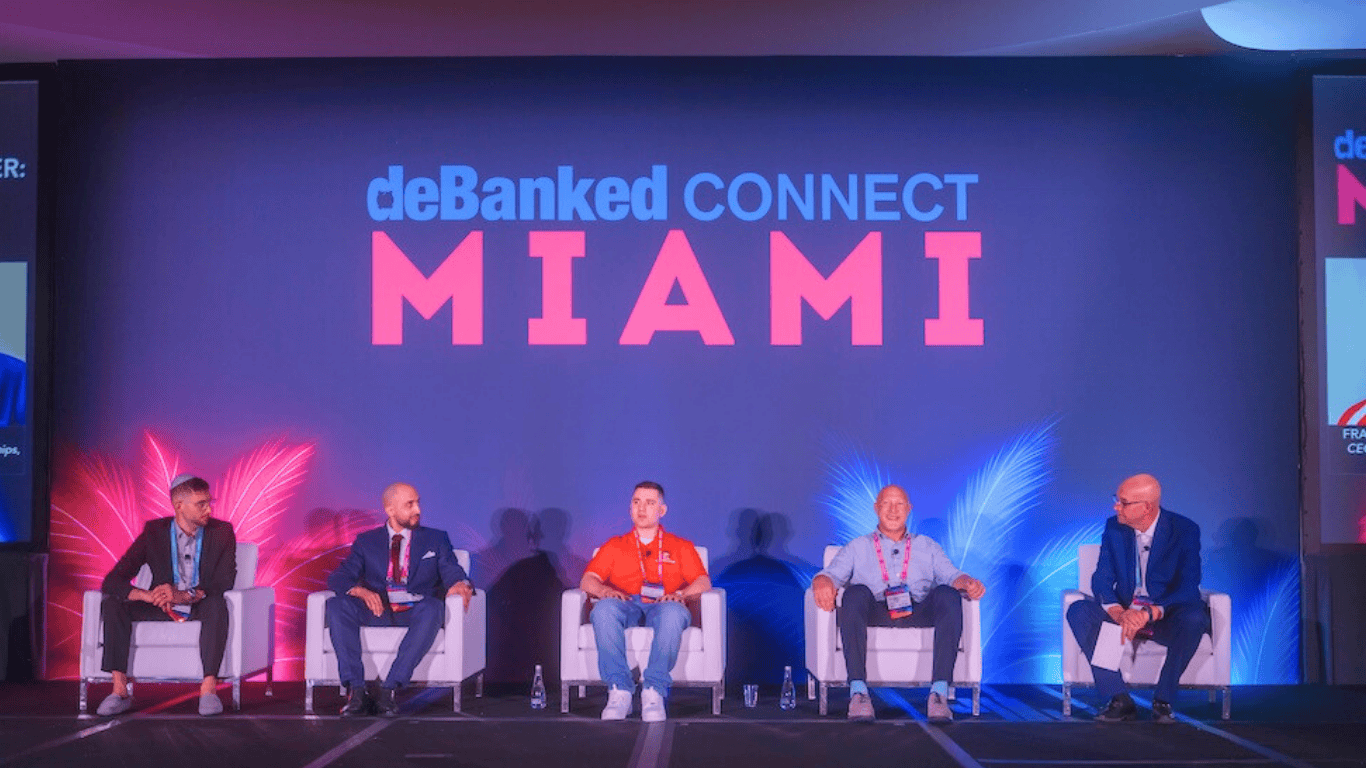The shift toward digital lending has fundamentally redefined the role of risk assessment within financial institutions. For alternative business lenders and institutional lending executives, merely meeting compliance standards is insufficient; the new mandate is achieving uncompromised speed and accuracy at scale. This necessitates integrating sophisticated Know Your Business (KYB) Application Programming Interfaces (APIs) directly into the Automated Underwriting System (AUS).
KYB is the essential due diligence process that confirms the legitimacy, legal standing, and ownership structure of a corporate customer or partner, providing a robust layer of security against fraud, money laundering, and illicit ownership setups.
By leveraging KYB APIs, manual, time-consuming verification tasks are transformed into instant, automated data queries, allowing lenders to make decisions in minutes—not days—and securing a critical competitive advantage.
Here is a strategic overview of the best KYB API solutions driving lending risk assessment today.
The Strategic Imperative: KYB APIs as Core Underwriting Infrastructure
The integration of verification APIs is no longer an optional enhancement but a foundational necessity for any digital lending infrastructure. This architecture dramatically improves efficiency, scalability, and defensibility by providing real-time, validated data inputs.
Accelerating Velocity While Reducing Risk
- Eliminating Verification Bottlenecks: APIs automate checks that once required manual searching across multiple government and private repositories. This streamlines identity verification processes, enabling businesses to verify identities swiftly and accurately in real-time.
- The removal of manual tasks saves valuable time, reducing the time-to-revenue and dramatically improving operational efficiency.
- Companies like 1West have successfully integrated APIs into their Automated Business Lending Engine (ABLE), allowing them to process thousands of full loan submissions monthly.
- This enhanced efficiency allows automated underwriting platforms (AUS) to process loan applications in minutes, fulfilling the modern borrower's expectation of instant decisions.
- Embedded Compliance and Audit Readiness: APIs embed regulatory adherence (AML/KYB) directly into the lending workflow. They provide the necessary, validated data points to demonstrate adherence to obligatory benchmark standards.
- KYB API integration generates comprehensive, timestamped audit trails that document every data input and decision point, crucial for regulatory examination or litigation defense.
- Most reputable identity verification APIs actively follow regulations such as Know Your Customer (KYC) requirements and the General Data Protection Regulation (GDPR).
- Automated systems ensure consistent application of underwriting criteria, eliminating inconsistencies that could lead to compliance violations and reducing the risk of fines.
- Superior Fraud and Identity Protection: Manual verification is susceptible to human error and manipulation, increasing the risk of fraud. APIs reduce the chances of human error by cross-referencing information from multiple sources instantly.
- APIs detect fraudulent activities and reduce the risk of fraud using advanced algorithms and data analysis techniques.
- This process helps mitigate first-party fraud (where borrowers misrepresent information) and third-party fraud by checking the authenticity of entities and associated people.
- The CoreLogic Mortgage Fraud Risk Index highlighted that identity fraud risk has risen for two consecutive years (up 5.5% in 2024 following a 12% increase in 2023), making automated fraud detection "essential infrastructure".
Primary Source Verification (The Authority Layer)
Lending risk assessment demands data that is not only fast but undeniably authoritative. APIs accessing government data directly provide the highest level of assurance regarding a business’s legal status and tax standing.
Featured API: Cobalt Intelligence (SOS, TIN, UCC)
Cobalt Intelligence focuses on delivering real-time, primary-source business verification data directly from state Secretary of State (SOS) offices and federal records.
Strong Proposition: Direct, Real-Time Data for High-Confidence Decisions
- Unmatched Data Freshness for Risk Mitigation: Cobalt is the only platform that offers real-time SOS data directly from all U.S. states. This immediate access ensures that critical information, such as entity status or address changes, is current within hours, bypassing the risk of stale data inherent in third-party aggregators.
- This capability is vital for mitigating fraud, as it instantly detects newly registered, dissolved, or inactive businesses—all common red flags for fraudulent applications.
- Lenders use this feature strategically; 1West’s ABLE uses the SOS-verified filing date to ensure the business is credited with the earliest possible start date, potentially qualifying the customer for more competitive offers across the funding network.
- In a use case, the API helped a lender automate SOS checks that previously took hours, allowing them to process over 5,000 loan applications per month with confidence.
- TIN/EIN Validation for Identity Spoofing Prevention: The TIN Verification API validates that the submitted business name and Employer Identification Number (EIN) precisely match IRS records in real-time. An EIN is legally required for most U.S. businesses to operate, open commercial accounts, and file taxes.
- This integration is crucial for KYB compliance and preventing identity spoofing by confirming the legitimacy and authenticity of the applying entity against the authoritative IRS source.
- The verification requires an exact match for the legal name and suffix against IRS records, providing a high bar for confirmation.
- The service confirms proper registration, eliminating one risk factor for lenders before capital deployment.
- Audit-Ready Documentation with Visual Proof: The SOS API can include a screenshotUrl in the response, linking to a real-time, timestamped, and watermarked image of the official state webpage.
- This feature creates "irrefutable visual proof" of validation, strengthening audit readiness and institutional defensibility for compliance teams.
- The platform also provides instant access to Uniform Commercial Code (UCC) filing data in supported states, allowing lenders to uncover existing liens and secured parties, offering crucial insight into the borrower’s financial obligations.
- The API supports intelligent matching logic, including a 'confidence level' indicator (0-1) to flag potentially mismatched results for deeper underwriter analysis.
Holistic Compliance and Global Coverage Platforms
KYB often requires checks beyond basic state registration, encompassing global sanctions screening and complex beneficial ownership identification. These platforms integrate diverse data sources for a comprehensive risk profile.
Featured Platforms: Middesk, Trulioo, and Sumsub
Multi-Layered Risk Orchestration and Scalability
- Comprehensive KYB and UBO Resolution: Platforms aggregate data needed for verification, including legal name, registered address, tax ID, and details about the ultimate beneficial owners (UBOs). UBO identification and screening are critical for meeting AML/KYB requirements, especially when dealing with complex corporate structures.
- Middesk achieves 100% coverage of U.S. registered businesses and enriches raw SOS data with credit assessment, litigation history, and sanctions screening.
- These solutions streamline the process; one national bank integrated Middesk and saw its auto-approval rate jump from 40% to 75-80%, significantly reducing the manual compliance workload.
- Sumsub automates business registry screening, UBO verification, AML checks, and document review, offering global KYB compliance expertise.
- Global Reach and Regulatory Flexibility: For institutions operating internationally, coverage across various jurisdictions is paramount for compliance and expansion.
- Trulioo’s Business Verification solution verifies entities and provides data intelligence in over 195 countries. Its platform helps businesses meet diverse regulatory standards, including AML/CFT requirements.
- Trulioo offers different levels of checks, including Business Essentials (vitals worldwide) and Business Complete (precise verification of data, ownership, subsidiaries, and documents).
- Sumsub boasts coverage in 180+ countries and can verify new businesses in an average of 15 seconds through automatic flows, allowing for quick global scaling.
- Integrated AML and Perpetual Monitoring: Risk assessment is an ongoing process that extends beyond initial onboarding. These APIs continuously screen against regulatory watchlists.
- KYB platforms integrate AML screening on the business itself, along with KYC/AML checks on key persons, adverse media checks, and regulatory enforcements.
- The ability to track changes in a business's profile and activities (Perpetual KYB) ensures continuous regulatory compliance and monitoring of company officers.
- Baselayer, another provider, offers ongoing monitoring services and integrates fragmented data sources using AI to help consolidate credit and identity signals for faster, safer approvals.
Alternative Data and Source Document Authentication
Digital lending relies heavily on real-time financial health data and enhanced measures to combat document forgery, requiring specialized APIs that delve deeper into operational and financial behavior.
Featured APIs: Plaid, Boss Insights (Financial Health) and DIRO (Document Authentication)
Dynamic Financial Insight and Fraud Elimination
- Real-Time Cash Flow Analysis: Alternative data, such as real-time financial health information, is critical for assessing capacity to repay, especially for small businesses with thin or non-existent traditional credit histories.
- Plaid and Boss Insights connect to a customer's bank accounts, accounting software, sales platforms, and payroll/tax data, aggregating key metrics like financial statements and transactions.
- This approach is instrumental for cash flow lending and predicting default risks, often performing comparably to traditional credit bureau data in terms of predictive creditworthiness.
- Utilizing these APIs enables lenders to tap into a substantial new market of nearly 49 million U.S. adults who lack sufficient credit history for traditional evaluation, allowing for potential lending expansion and differentiation.
- Source-Level Document Authentication: While many platforms check documents, some specialize in verifying the documents directly from the issuing source, eliminating forgery risk.
- DIRO’s business verification API captures and authenticates submitted corporate documents (e.g., bank statements, incorporation documents, utility bills) directly from the issuing source with user consent.
- This automated, real-time process eliminates the use of fake, stolen, and tampered data, which is crucial for fraud prevention in merchant or vendor onboarding.
- The system creates a tamper-proof, immutable original document, combining the original source webpage with forensic data, storing a digital fingerprint (checksum) on a public blockchain for enhanced security and auditability.
- Enhanced Underwriting Parameters via Integration: The financial data aggregated by these platforms feeds directly into predictive AI models used by lenders.
- Plaid’s suite includes Identity, Balance, Signal (ACH risk assessment and scoring), and Income products, offering a comprehensive view of cash flow and employment stability.
- Lending platforms integrate these financial aggregators (e.g., 1West uses Plaid alongside other APIs) to digest information and apply customized rules for different industries and business tenure, accelerating loan origination scoring.
- For specific verification scenarios, APIs offer niche checks, such as DIRO’s balance confirmation and address verification, or checking specific credentials like contractor licenses (Contractor License Verification API) for industry-specific compliance.
Conclusion: The API-First Future of Lending
For institutional lending executives and digital funders, migrating away from manual underwriting to an API-first strategy is paramount for sustained success. This approach leverages specialized APIs as modular components that plug seamlessly into an Automated Underwriting System (AUS), ensuring every decision is rapid, accurate, and compliant.
The strategic pathway involves recognizing the distinct value proposition of each API category:
- Foundation: Use specialized, primary-source APIs (like Cobalt Intelligence) for immediate, authoritative proof of legal existence and tax identification, providing the freshest data and irrefutable audit trails.
- Expansion: Layer in comprehensive KYB platforms (like Middesk, Trulioo, or Sumsub) to manage global reach, complex UBO structures, and continuous AML/risk monitoring.
- Financial Depth: Integrate alternative data APIs (like Plaid or Boss Insights) to shift assessment toward real-time cash flow and enable lending to previously underserved, yet creditworthy, small businesses.
By orchestrating these components, digital lenders transform compliance from a regulatory burden into a strategic competitive advantage, allowing them to accelerate capital deployment while building highly accurate, scalable, and audit-ready operations.












.png)